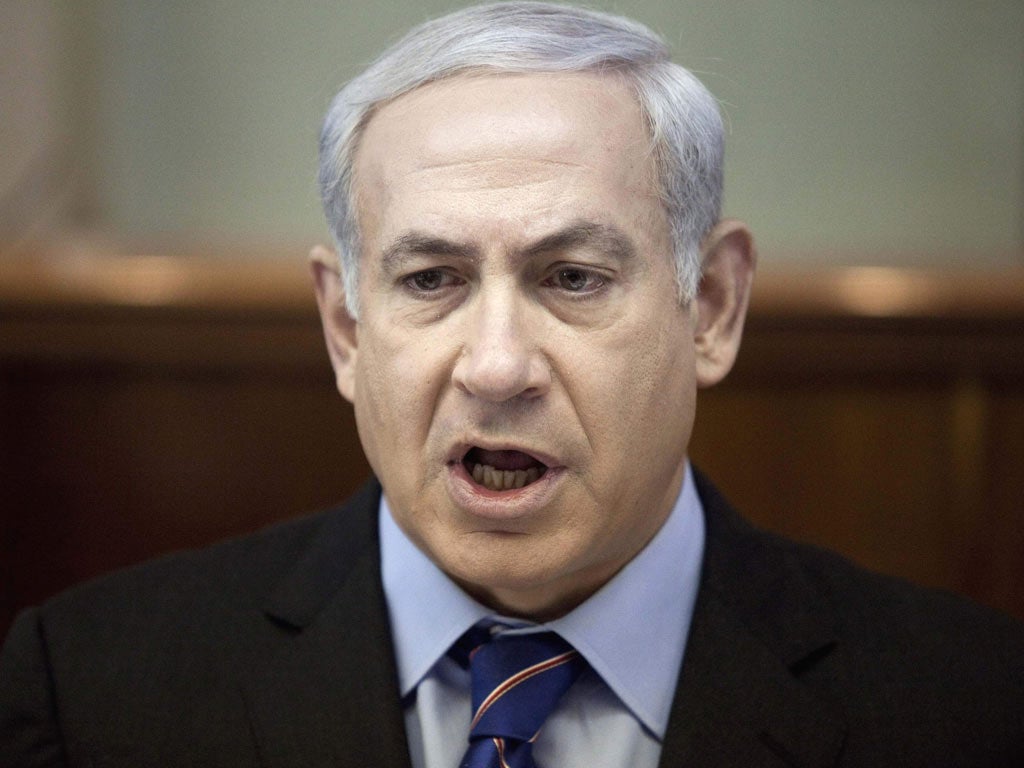Secret paper reveals EU broadside over plight of Israel's Arabs
Memo seen by The Independent highlights tensions between Tel Aviv and Europe.

Your support helps us to tell the story
From reproductive rights to climate change to Big Tech, The Independent is on the ground when the story is developing. Whether it's investigating the financials of Elon Musk's pro-Trump PAC or producing our latest documentary, 'The A Word', which shines a light on the American women fighting for reproductive rights, we know how important it is to parse out the facts from the messaging.
At such a critical moment in US history, we need reporters on the ground. Your donation allows us to keep sending journalists to speak to both sides of the story.
The Independent is trusted by Americans across the entire political spectrum. And unlike many other quality news outlets, we choose not to lock Americans out of our reporting and analysis with paywalls. We believe quality journalism should be available to everyone, paid for by those who can afford it.
Your support makes all the difference.A growing gulf between Israel's Jewish and Arab communities is highlighted in a critical EU paper which breaks new ground by suggesting that the international community has a role in ensuring "genuinely equal treatment" for the country's Arab minority.
The confidential 27-page draft prepared by European diplomats and seen by The Independent charts a wide range of indicators showing that Israeli Arabs suffer "economic disparities ... unequal access to land and housing ... discriminatory draft legislation and a political climate in which discriminatory rhetoric and practice go unsanctioned."
The paper also levels criticisms at some Israeli Arab leaders, charging that the most extreme feed accusations of disloyalty within the majority Jewish community. And it is careful to praise positive state measures affecting the Arab community, including on policing. But it charges that Israel has addressed "few" of the recommendations on the "socio-conomic causes of Israeli Arab frustration" made by the Or Commission, appointed after 12 Israeli Arabs were killed by police during demonstrations 11 years ago.
The circulation of the paper has irritated Israel's Foreign Ministry, which yesterday accused the EU diplomats of preparing the document "behind our backs" and not seeking the government's views. "We were not informed, consulted or approached about this document allegedly written by EU diplomats," the ministry's spokesman said.
While EU leaders regularly criticise Israel over its activities in occupied territory – including the growth of settlement building – the draft is unusual in tackling a highly sensitive issue within Israel's borders. It warns that the erosion of Israel's founding ethos – as a Jewish homeland but one committed to treating all citizens equally – "will reinforce those who seek to 'delegitimise' Israel and damage [its] international standing".
A detailed list of recommendations for the EU itself – including active lobbying against discriminatory laws, allocating more European scholarships to Arab students, encouraging European high-tech companies to invest in Arab areas, and fostering the teaching of Arabic and co-existence projects in schools – are understood to have been dropped from the paper after objections mainly from the Netherlands. The draft affirms that Israel's treatment of its minorities within its borders should be seen by the international community as a "core issue, not second tier to the Israeli-Palestinian conflict".
The diplomats also highlight a recent spate of Knesset bills which "would have denied some Israelis their citizenship, legalised discrimination in access to housing, and limited freedom of speech". While the paper acknowledges that the "most discriminatory" elements of such legislation have largely been softened or eliminated, such bills "have a chilling effect on Jewish-Arab relations".
It also points out that despite "robust anti-incitement laws" and the fact that the Israeli Prime Minister "eventually" issued a condemnation, no action was taken against 47 state-employed municipal rabbis who called for Jews not to let property to Arabs.
The paper points out that while being up to 20 per cent of the population, Israeli Arabs own only 3 per cent of the land. It says Arab average earnings are only 61 per cent of those in the Jewish community, with 50 per cent of Israeli Arabs living in poverty, according to the OECD.
Join our commenting forum
Join thought-provoking conversations, follow other Independent readers and see their replies
Comments